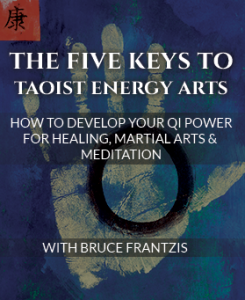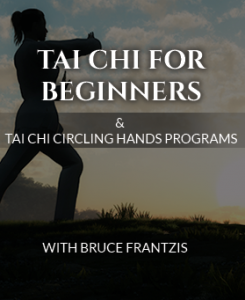7 Stages of Learning Tai Chi
Having taught tai chi and qigong to more than 15,000 students, I have come to a deep understanding of seven distinct stages that my students have gone through in learning and adopting tai chi into their daily lives.
Energy Arts offers several Tai Chi programs – for every stage of your Tai Chi practice!
Stage 1: Starting the Tai Chi Search
Students talk to their friends and health and fitness practitioners. They read tai chi books and tai chi research on the Internet about practices that can help them achieve their goals. They find something that rings true intellectually or emotionally—it seems right, it makes sense or they think it will solve their particular problems. They look for intellectual confirmation to bolster their view. They narrow their choices to a few.
Stage 2: Seeing What Fits
In this stage, people research what tai chi teachers and tai chi classes are available. They may take an introductory tai chi class or weekend seminar and talk with different tai chi students and teachers. They may purchase a tai chi video and try a practice on their own. They find out about the challenges involved and then must make a decision if it is something they want to do.
Stage 3: Committing to a Tai Chi Class
In this stage, people commit to a tai chi class several times a week. External factors matter: the setting of the tai chi class, the personalities of the teacher and other students.
Stage 4: Practicing Tai Chi Outside of Class
There is an ancient phrase that tai chi teachers like to quote: “The teacher leads you to the gate, but only you can pass through.” At some point, students must take tai chi unto themselves and make it their own.
That begins with practice tai chi outside of class. The tai chi teacher will show what the next learning phase is and ask students to practice in order to progress. At first tai chi beginners will feel happy to learn the basic tai chi movements and get better at them. But, the bigger challenge is to learn them well enough to feel their impacts deep inside the body and mind and develop the new inner rhythms that will lead to adopting tai chi as a daily practice.
When students begin to practice tai chi outside of class their practice is often erratic. There is no support from their tai chi teacher or other students when they encounter moments of forgetfulness or awkwardness.
There are also the very real challenges of encountering negative emotions without anyone to provide guidance. In addition, there is the inherent slowness of the process in learning and remembering the tai chi moves and feeling the benefits. The best strategy for success at this stage in learning tai chi is for students to find a consistent time and place to practice—a time that is held apart and becomes routine and inviolable in a place where the tai chi practice cannot be interrupted.
Stage 5: Committing to Tai Chi Mastery
Students have stuck to the tai chi class long enough to learn basic tai chi movements and have developed the practice habits that bring about new internal rhythms. While practicing tai chi, there will be breakthrough moments when new plateaus are reached. In these moments students suddenly feel more agile and alive; their minds and spirits have moments of great clarity and focus; they feel moments of total relaxation combined with a new ability to handle tensions and anxieties. They recapture the sheer joy of learning they once had as children.
Stage 6: Facing Challenges
Chinese energy practices inherently come with inner difficulties to overcome and pass through. Plateaus may be followed by periods where not much seems to happen, the practice seems to be going nowhere and self-sabotage is likely. This is where tai chi students feel their negative karma and the effects of the accumulations of negative emotions.
They may quit just before a new summit is reached and sink back into self-destructive habits. Tai chi brings them increasingly into contact with their ego and the flow of their energy. When they begin contacting that energy, for better or for worse, they will contact areas of their emotions or thinking that may make them feel out of control. When they start traveling in unfamiliar territory they might become uncomfortable and afraid of working through these feelings. They become fearful of what they may encounter and stop practicing tai chi.
One of the warning signs of self-sabotage is disassociation. Students do the tai chi movements on automatic pilot and remain unaware of their effects. They will have to make peace with themselves before they can pass through it and head towards the sublime. With diligence and perseverance students will build a solid tai chi foundation that will effectively and increasingly enable their practice.
Stage 7: Re-inspiration
In the period that follows a plateau or an encounter with a self-destructive habit, students need approach their practice gently and find ways to challenge themselves with small successes so that their tai chi practice inspires them again.
They might try:
- Focusing on relaxing particular body parts as they do the tai chi movements, such as softening their shoulders or relaxing their stomachs.
- Making their tai chi movements more connected and smooth.
- Doing tai chi movements extremely slowly.
- Practicing one tai chi movement over and over.
- Relaxing into one tai chi posture and hold it for a minute or more.
Thinking of ways to continuously re-inspire themselves will keep the tai chi practice fresh and alive. Satisfaction must come from the inside and increasingly this is what the practice of tai chi can provide.






Thankyou, Bruce for this. And for all your books and videos and CD’s.
I joined your mailing list and got the download with it as well. This has helped me immensely. I have been studying Yang style tai chi for several months, it turns out with a really good teacher.
I have been in the martial arts since 1970. I have felt energy in many ways since I was a child and have worked as a healer with as much care and awareness as I could. I found myself gravitating toward tai chi and qi gong again and again. When I found your system, I felt like my search was over. I hope one day to attend one of your work shops.
Peace,
Philip
Ive been teaching Tai Ji since 1990 studying since 1984 {aged 19}. Studied with Mr Frantzis in UK courses and Instructor trainings{Dragon and Tiger} from 2002- all of which has completely changed my practices. With new students coming in all the time i cant think of a more succinct description of the stages of learning Tai Ji for them or myself;-}
Dear Bruce: First, a large “Thank You” for the guidance you have shared with me over the past 15 yrs.of Martial Arts training. I’m a 4th degree Black Belt in Tai Kwon Do. I believe that You have been my secret Master. I didn’t start until I was 47. So many of your techniques have acted as a confirmation to maintaining both the hard and soft styled training programs through which I have evolved. I too know that Practice is my Teacher…. and that I become through an Embodied Mind…. Keep it on. Yours Truly, Sa Bum Nim Lou Pomeroy
Hey there,
Thought I’d let you know that I link to this article, from my own (recently launched) website at Dojoly.com
I also wanted to thank you for your stellar contribution to the Martial Arts Community, and invite you to sign up on Dojoly and share your insight.
So… thanks!
You can find that link here: http://dojoly.com/learn/styles/tai-chi
Thanks again,
-Michael
Hi I am extremely interested in purchasing your tai chi mastery programme however I see it is sold out please could you inform me of when I will be able to purchase it.
Also I see you are releasing a beginners program and wondered as I am pretty much a beginner which program would be best I am deffenatly hooked on tai chi and look forward to practising well into old age.
Kind regards
Ryan
hi sir
i am a kyukushin black belt student.i want to learn tai chi,how to start as a very beginner .please help me,!!!
Please, me and my wife are interested in Tai Chi’s chi kung, and of course, in tai chi also.- We live at Miami (Florida), and want to find a teacher; would you please give us any address? Thank you very much.
Reinaldo